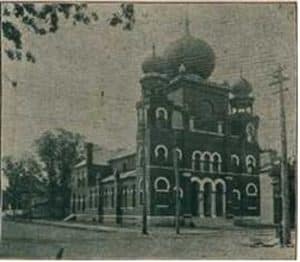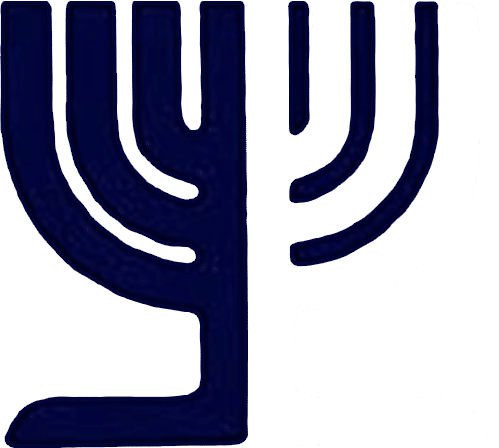An organized Jewish community has existed in Paducah since 1864 when the Chevra Yeshurum Burial Society was chartered. The first Jewish house of worship in Paducah was established in 1871, located on the east side of South Fifth between Clark and Adams. In 1873, the Paducah Jewish congregation became a charter member of the Union of American Hebrew Congregations (which is now called the Union for Reform Judaism).

In 1893, a new structure was built on the southeast corner of Seventh and Broadway and incorporated as Temple Israel. That building served as home for the congregation until May 1963, when Temple Israel on the southeast corner of Madison and Joe Clifton Drive was dedicated. The synagogue at that time had ~75 members (families and individuals) and a full-time rabbi. Temple Israel Cemetery, located three miles away on Lone Oak Road, is of historical significance with over 400 gravesites and the oldest markers dating back to the 1850s.

After 130 years of incorporation and 60 years in its present location, Temple Israel remains vibrant with ~30 members and prospects and continues to proudly represent the region’s Jewish heritage. Most members currently live in and around Paducah, but the congregation also includes Jews living in other western Kentucky towns up to 60 miles away as well as parts of southern Illinois, southeast Missouri, and northwest Tennessee. The synagogue itself has a sanctuary that seats ~100 people, a social hall, religious school classrooms, and a lounge. Temple Israel was able to support full-time rabbis up until 1992. For the past 30 years, we have sponsored student rabbis from Hebrew Union College in Cincinnati. They lead Shabbat and holiday services, oversee life cycle events, conduct Torah study for adults, offer children’s programs, and assist in conversions.

The vision for Temple Israel is to become a regional center for Reform Judaism accessible to the quad-state region. We strive to be a congregation of caring and compassionate members committed to sustaining a secure and sacred space – the building and cemetery – in perpetuity. To accomplish this, we must ensure access to a full- or part-time rabbi. Our lay leadership must nurture and grow a critical mass of members and supporters who understand our purpose and actively support our cause. This includes having regular Shabbat and holiday services, offering adult and children programming, assisting those in need and performing acts of lovingkindness, serving as environmental stewards, preserving our history, promoting diversity and inclusivity, supporting a democratic Israeli state, providing Holocaust education, and fighting antisemitism.
